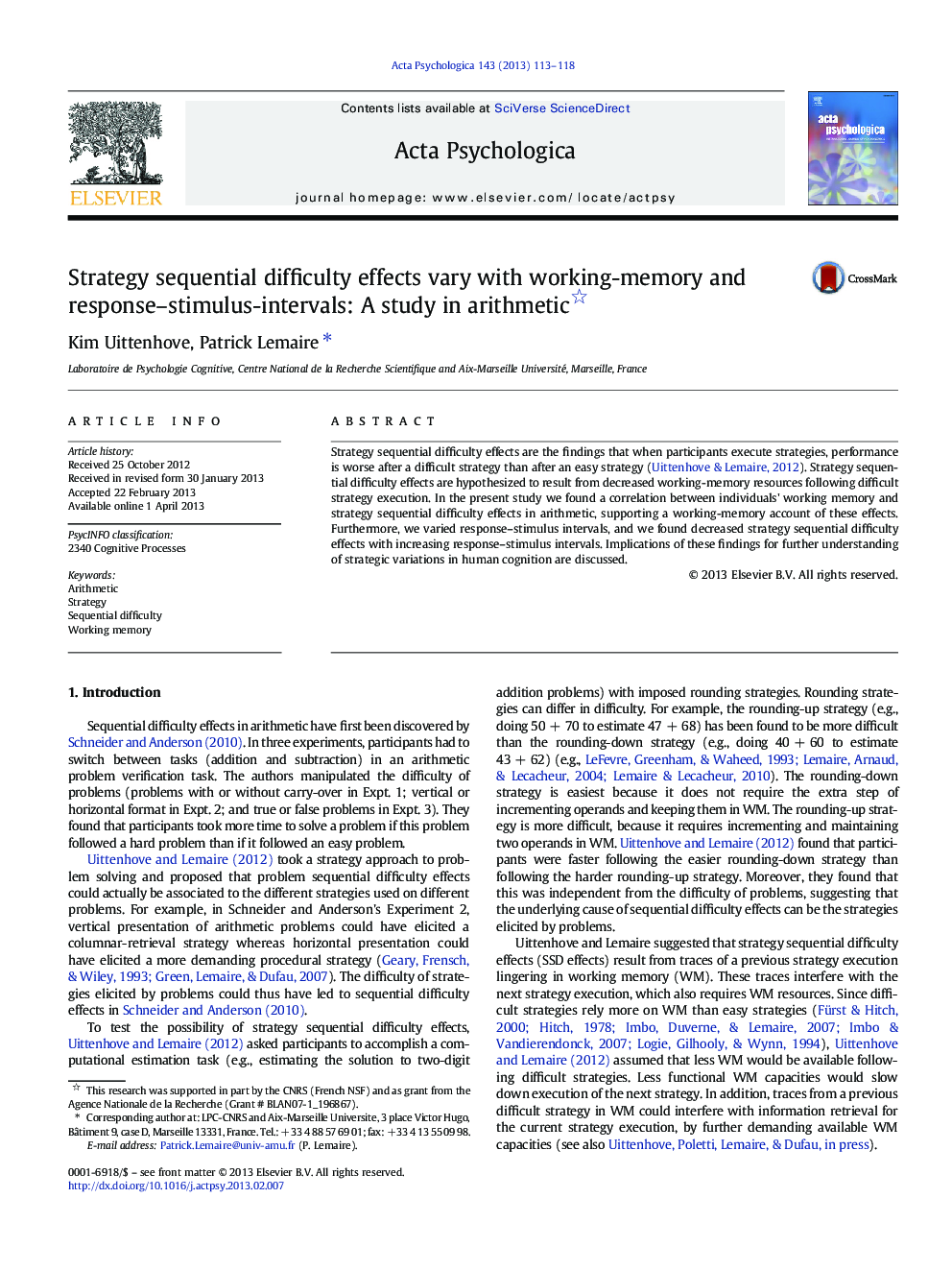| Article ID | Journal | Published Year | Pages | File Type |
|---|---|---|---|---|
| 919871 | Acta Psychologica | 2013 | 6 Pages |
Strategy sequential difficulty effects are the findings that when participants execute strategies, performance is worse after a difficult strategy than after an easy strategy (Uittenhove & Lemaire, 2012). Strategy sequential difficulty effects are hypothesized to result from decreased working-memory resources following difficult strategy execution. In the present study we found a correlation between individuals' working memory and strategy sequential difficulty effects in arithmetic, supporting a working-memory account of these effects. Furthermore, we varied response–stimulus intervals, and we found decreased strategy sequential difficulty effects with increasing response–stimulus intervals. Implications of these findings for further understanding of strategic variations in human cognition are discussed.
•We investigated arithmetic strategy execution performance.•Performance was slower following a difficult than following an easy strategy.•Effects were present only when response-stimulus interval was sufficiently short.•Effects were present only in individuals with low working-memory capacity.
